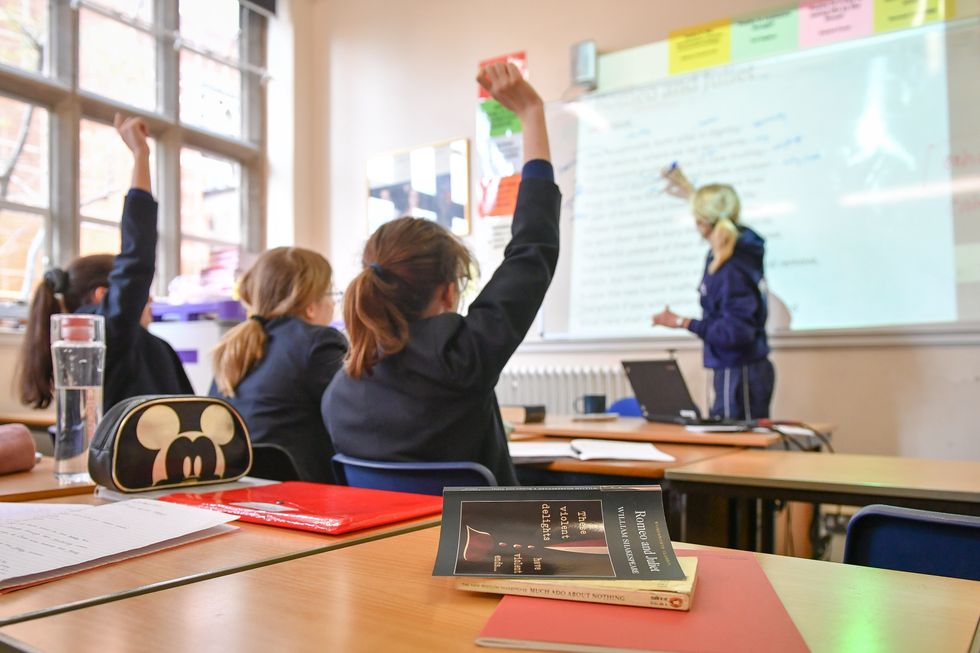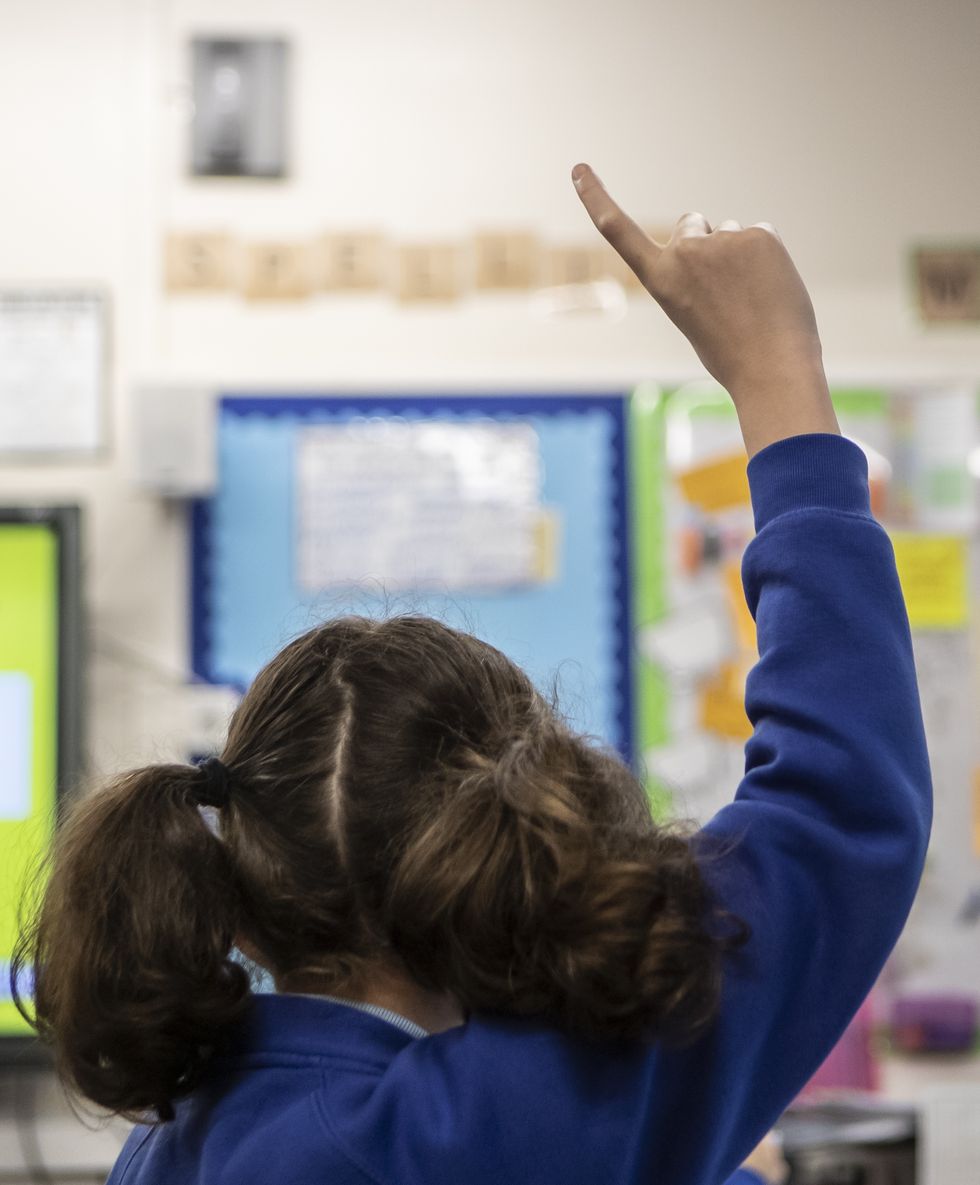Don't Miss
Most Read
Trending on GB News
Pupils researching topics for history projects online can be exposed to extremist content and Holocaust denial, teachers have warned.
At the NASUWT teaching union’s annual conference in Birmingham on Monday, member Rachel Minto said extreme far-right material could be accessed by pupils “24/7 with a few swipes of your phone”.
“More worryingly, children can accidentally come across this material whilst innocently researching for school projects,” she said.
“A Google search on the Holocaust can bring up information provided by a Holocaust denier as easily as legitimate or sound historical documentation,” she told the conference.
Ms Minto said research showed that “children’s access to social media and smartphones means they are more at risk of being exposed to extremist material than ever before”, with time spent online increasing exponentially during the pandemic.
School children
Ben Birchall
“Gone are the days when far-right information and propaganda was confined to the back rooms of seedy pubs and clubs,” she said.
Ms Minto said she was “increasingly alarmed and appalled by the gradual normalisation of far-right views”.
She added that a lack of challenge to these views by some politicians and the media “is filtering into the psyche of our schools and into the homes of our pupils”.
“This is intensified by the Government’s continued attack on what they have termed the woke agenda and their reluctance to rally behind Black Lives Matter,” she added.
Teachers at the conference voted for the union to lobby governments to invest in new international education programmes to promote diversity, and to produce training for members to help them challenge far-right nationalism.
NASUWT member Candida Mellow said she was “appalled and sickened” by the far right, and that as a teacher of French she was horrified that a “cloaked neo-Nazi” was standing for the French presidency.
“As a result of Brexit, we have lost a lot of our cross-border links and education programmes, and therefore the possibility of our young people to experience cultural differences,” she said.
A child during a class at a primary school
Danny Lawson
“We also need to actively educate our students about online infiltration of far-right messages. These insidious organisations use subtle tactics to indoctrinate very vulnerable children.”
Union member Nicholas Tones said that around seven years ago he had noticed that one of the accounts following his English department’s Twitter account, belonging to a pupil’s parent, consisted only of retweets of far-right activist Stephen Yaxley-Lennon, also known as Tommy Robinson.
He reported this as a concern under the Prevent strategy.
“From the feedback that I sought afterwards, it seems there was a considerable delay by both the designated officer and the local authority in processing this concern and acting upon it, because, to misquote the late, great Sir Alec Guinness, this is not the radicalisation we’re looking for.”
He said those running Prevent had “evolved somewhat” since then, but only in the context of an increasingly “toxic and polarised” political environment.
Another NASUWT member, Judith Bruce-Golding, who is black, said she had grown up on an estate which was the home of the National Front, and she had seen her sisters return from a school disco with ripped clothes after being chased by racists.
“My sister came home in a bra, because they had been chased – it was a tough time.
“When we think about anti-far right initiatives, to me it goes back to what gives people the right to look at someone else and think that they can go into their boundaries, and it made me think about, ‘What have you been taught?'”
She said this had made her realise “how much power we have as teachers to include and build that sense of belonging for all of those children who are different in that space”.
She said the union needed to discuss what it meant to decolonise a curriculum and undermine the far-right initiatives that “may be embedded in our curriculum”.
Patrick Roach, NASUWT general secretary, said the union was “alarmed by the incidence of far-right extremism and hate crimes in the UK”.
“Over the last decade, the Government has peddled a hostile environment agenda which has created the conditions for hatred to flourish,” he added.
“Official numbers of reported hate crimes have risen to more than 124,000 a year across England and Wales.
“Nearly three-quarters of these hate crimes were racially motivated – increasing by 12% in just a year.”
Dr Roach added that “schools are not immune, as children and young people are often exposed to hate speech on social media and elsewhere”.
He said more needed to be done to address the problem of extremist views in schools.
“Concerted Government-level action is urgently needed to support schools in tackling the problem and to support pupils and teachers who have been targeted and victimised,” he said.
“Anti-racism must be central to the curriculum and schools and colleges must also be supported and equipped to provide a curriculum that challenges all forms of bigotry, prejudice and hatred.”












